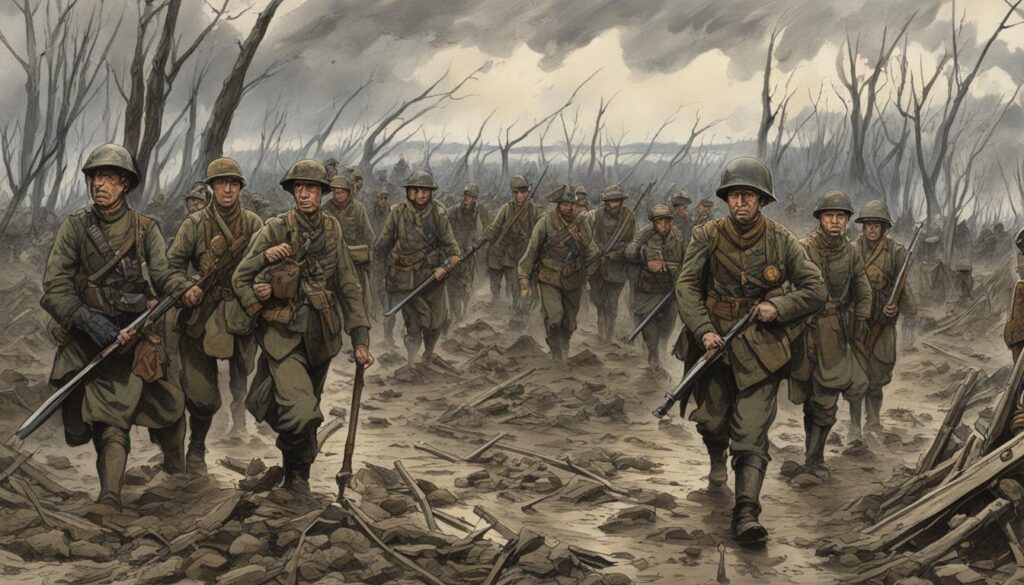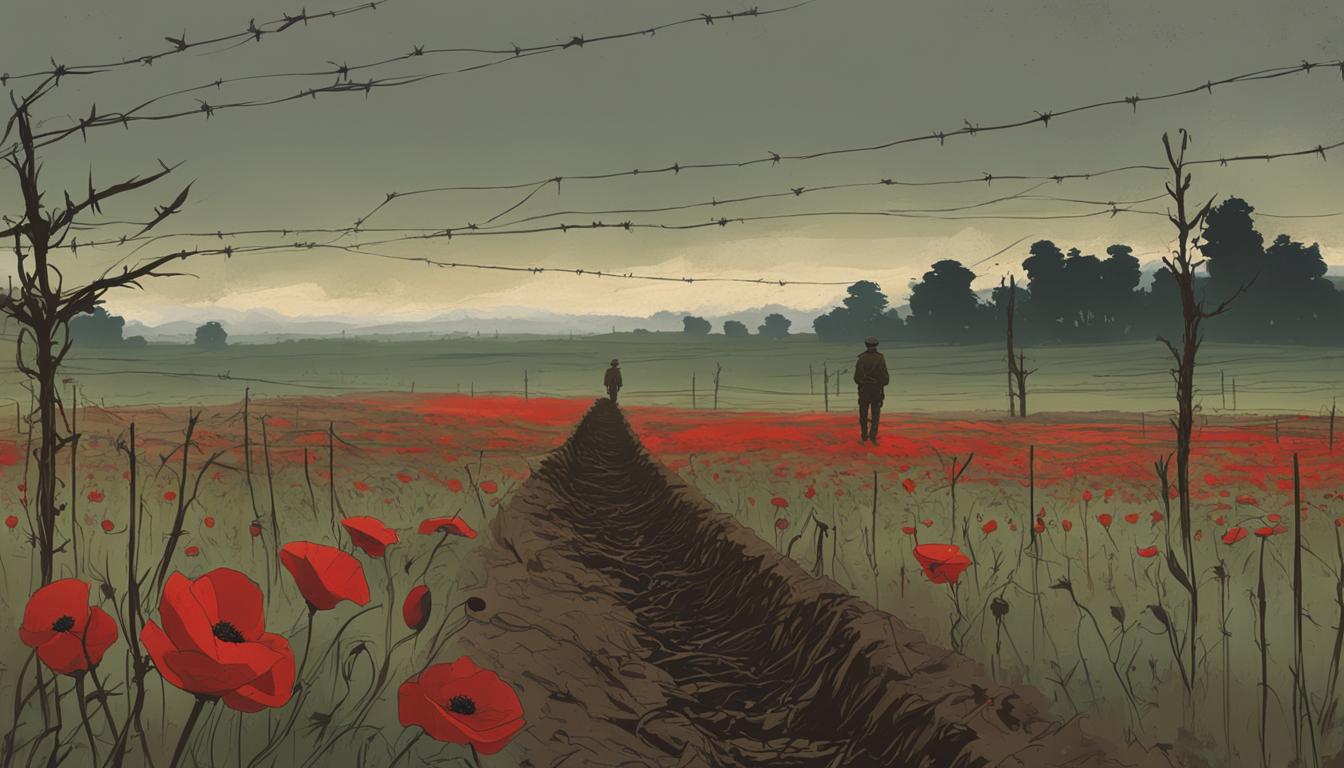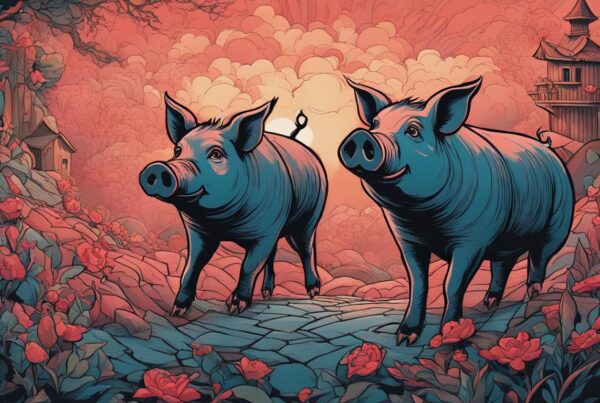If you are a fan of historical non-fiction books, then “A Foreign Field” by Ben Macintyre should definitely be on your reading list. This book tells the gripping true story of love and betrayal set against the backdrop of the Great War. In this article, we’ll provide a book summary of “A Foreign Field,” exploring the themes, characters, and plot. We’ll also take a look at the author, Ben Macintyre, and his writing style. By the end of this article, you’ll have a comprehensive overview of this captivating book and why it’s worth your time. So, let’s dive into the world of “A Foreign Field” and the Great War.
About the Author
Ben Macintyre, the author of “A Foreign Field,” is a renowned journalist, author, and historian. With a career spanning over three decades, he has written several best-selling books, including “Operation Mincemeat” and “The Spy and The Traitor.”
Macintyre is known for his expertise in writing historical narratives, particularly those focusing on espionage, warfare, and cataclysmic events of the twentieth century. His experience as a senior writer and columnist for The Times and The Sunday Times has honed his writing skills, and his engaging style of storytelling has made him a popular figure in the literary world.
Macintyre’s background as a historian and journalist is reflected in his writing style, characterized by accuracy, attention to detail, and vivid descriptions. He is a gifted storyteller, with an ability to breathe life into historical events and make them come alive on the page. His deep understanding of history and his talent for storytelling make “A Foreign Field” a must-read book for anyone interested in the Great War and its impact on personal relationships.
Setting the Stage: World War I
In the early 20th century, a complex web of alliances and political tensions brought Europe to the brink of war. The assassination of Archduke Franz Ferdinand of Austria-Hungary in Sarajevo triggered a chain of events that resulted in the outbreak of the First World War. For over four years, the conflict enveloped much of the world, with battles waged in Europe, Africa, and Asia. It was a war unlike any other, characterized by trench warfare, new technologies, and staggering casualties. The Great War, as it was known at the time, saw the rise of global superpowers and the fall of empires.
The impact of World War I was far-reaching, reshaping the political, economic, and social landscape of the world. The Treaty of Versailles, signed in 1919, imposed heavy reparations on Germany and created the League of Nations, an international organization aimed at preventing future conflicts. The war also had profound effects on individual lives, with millions of soldiers and civilians experiencing trauma, loss, and displacement. The historical context of World War I provides an essential backdrop to the events portrayed in “A Foreign Field” by Ben Macintyre.
Causes of World War I
The causes of World War I are complex and multifaceted. Some of the key factors that contributed to the outbreak of the war include:
| Factor | Description |
|---|---|
| Militarism | The belief that a country should maintain a strong military capability and be prepared to use it in order to achieve political goals. |
| Alliances | A series of treaties between European powers that obliged each nation to provide military support to one another in the event of an attack. |
| Imperialism | The competition among European powers for colonial territories, resources, and markets. |
| Nationalism | The belief in the superiority of one’s own nation and the desire to protect its interests and culture. |
| Assassination of Archduke Franz Ferdinand | The assassination of Archduke Franz Ferdinand of Austria-Hungary by a Serbian nationalist was the immediate trigger for the start of the war. |
The complex interplay of these factors contributed to a sense of tension and distrust among European nations, ultimately leading to the outbreak of World War I.
Characters and Relationships
In “A Foreign Field” by Ben Macintyre, readers are introduced to a cast of complex characters brought together by the trials of World War I. The main protagonists of the novel include Robert Digby, Jeanne d’Ussel, Felix von Luckner, and Alexandra Romanov. Each character has a unique background and motivation, adding layers of depth to the overall story.
Robert Digby, a British officer, is haunted by his experiences of the war and seeks solace through his budding romance with Jeanne d’Ussel, a Frenchwoman who has suffered from unimaginable loss. Despite the odds stacked against them, their love story is a beacon of hope in a dark and uncertain time.
Felix von Luckner, a German naval officer, is an enigmatic figure whose allegiances remain unclear throughout the novel. His interactions with Alexandra Romanov, the former Tsarina of Russia, add another layer of intrigue to the story.
The relationships between these characters are complex, shaped by their experiences in war and their personal motivations. As the story unfolds, readers are drawn into a web of love, betrayal, and redemption.
Robert Digby and Jeanne d’Ussel
Robert Digby and Jeanne d’Ussel’s love story is at the heart of “A Foreign Field”. Their initial encounter is marked by tension and suspicion, as they are on different sides of the war. However, as they get to know each other, their romance blossoms. Despite the challenges they face, including the disapproval of their respective families, they remain committed to each other.
Felix von Luckner and Alexandra Romanov
The dynamic between Felix von Luckner and Alexandra Romanov is intriguing, as they come from opposing sides of the war. Von Luckner’s motives are unclear, and his interactions with Romanov are fraught with tension. As the story progresses, the true nature of their relationship is revealed, adding a layer of complexity to the overall narrative.

“A Foreign Field” brings to life the complexities of human relationships in times of war and the impact of personal choices on the larger historical context.– The New York Times Book Review
Plot Summary
In “A Foreign Field,” Ben Macintyre masterfully weaves together a captivating story set during the Great War. The novel tells the tale of a young soldier named John “Jack” McCrae, who is sent to fight on the Western Front alongside his childhood friend Stan, a skilled sniper.
As Jack navigates the horrors of trench warfare, he falls in love with a Belgian nurse named Helene, whom he meets while recovering from injuries sustained on the battlefield. Their love story unfolds against the backdrop of the war, with Helene helping Jack and his comrades evade German patrols and make their way back to Allied territory.
Meanwhile, Stan struggles with his own inner demons, ultimately betraying Jack and setting in motion a series of events that lead to a tragic and unexpected ending. Throughout the novel, Macintyre expertly crafts a tale of love and betrayal set against the backdrop of one of the most tumultuous periods in human history.
Major events in “A Foreign Field”:
| Event | Description |
|---|---|
| Jack and Stan’s arrival at the Western Front | The two childhood friends begin their service in the British army. |
| Jack’s injury and Helene’s introduction | Jack is wounded and meets Helene, a Belgian nurse who tends to his injuries and with whom he falls in love. |
| Stan’s betrayal | Stan turns on Jack and the other soldiers, leading to a tragic ending. |
In short, “A Foreign Field” is a powerful love story set during the tumultuous events of World War I. Macintyre’s expert storytelling and attention to detail make it a must-read for anyone interested in historical fiction or wartime romance.
Themes and Motifs
In “A Foreign Field,” Ben Macintyre explores various themes and motifs that add depth and nuance to the story. One of the primary themes is love, which is tested and strained by the chaos and brutality of war. The book also highlights the motif of betrayal, as characters navigate complicated relationships and conflicting loyalties.
Another prominent theme in the book is sacrifice, as characters make difficult decisions in order to protect themselves and their loved ones. The impact of war on personal relationships is also explored, revealing the toll that such a conflict can take on individuals and the community as a whole.
Through these themes and motifs, “A Foreign Field” offers readers a poignant and multifaceted look at the realities of war and the complex dynamics of human relationships in times of crisis.
Writing Style and Narration
One of the most striking features of “A Foreign Field” is author Ben Macintyre’s distinct writing style. The book’s prose is descriptive and vivid, immersing readers in the sights, sounds, and emotions of the Great War. Macintyre’s writing showcases his extensive research on the subject matter, allowing readers to gain a comprehensive understanding of the events described in the book.
Another noteworthy aspect of Macintyre’s writing is his skillful character development. Each character is brought to life with unique traits and realistic nuances, contributing to the book’s overall authenticity and impact. This level of detail enhances the readers’ understanding of what it was like to live through the Great War and the complexities of relationships during such a turbulent time.
The tone of the book is reflective and introspective, as the characters and narratives navigate the profound effects of war on human connections. Macintyre’s writing seamlessly weaves together a love story and war narrative, creating a compelling and emotionally resonant plot.
“A Foreign Field” is a great example of how historical nonfiction can be both informative and engaging, thanks in no small part to Ben Macintyre’s writing style and narration techniques.

Expert Insights
Renowned historian and author Simon Schama praised “A Foreign Field,” commending Macintyre’s writing style and research. In a book review for The Guardian, Schama writes, “The research is a marvel, and the story is told with such command that it impresses itself indelibly on the mind and the heart.”
Final Thoughts
Ben Macintyre’s writing style and narration techniques in “A Foreign Field” are a testament to his expertise in historical nonfiction and ability to create an engaging narrative. His descriptive prose, skilful character development, and introspective tone create a rich and immersive reading experience that delves into the complexities of love, betrayal, and war during the Great War.
Critical Reception
Since its publication, “A Foreign Field” has garnered critical acclaim for its nuanced portrayal of a fascinating period in history. Reviews from reputable sources have praised the book’s compelling characters, intricate plot, and immersive storytelling, cementing its place as a must-read for fans of historical nonfiction.
“Macintyre is a master storyteller who weaves together a complex narrative with skill and insight. ‘A Foreign Field’ is a triumph of historical nonfiction.”
– The New York Times Book Review
Other notable reviews have highlighted the book’s attention to detail and emotional resonance. The Guardian praised Macintyre’s “superb storytelling”, while The Sunday Times lauded the book as “a poignant reminder of how war affects people in unexpected ways.”
While some reviewers have noted minor flaws in the book’s pacing or structure, the consensus among critics is overwhelmingly positive. “A Foreign Field” is a powerful exploration of love and betrayal set against the backdrop of one of the most catastrophic conflicts in human history.
Impact and Legacy
“A Foreign Field” by Ben Macintyre has had a significant impact on the genre of historical nonfiction. Through its gripping storytelling and unique perspective on World War I, the book has captured the hearts of readers and critics alike.
The legacy of “A Foreign Field” can be seen in its enduring popularity and influence on subsequent works. The book has inspired adaptations, spin-offs, and documentaries, attesting to its lasting significance.
“Ben Macintyre’s ‘A Foreign Field’ is a true masterpiece of narrative nonfiction. It not only provides a captivating portrayal of the events of World War I but also delves into themes of love, betrayal, and sacrifice, making it a must-read for history buffs and general readers alike.”
The Impact of “A Foreign Field”
| Positive Impact | Negative Impact |
|---|---|
| Increased interest in historical nonfiction | Some critics felt the book was too focused on the love story aspect |
| Award-winning bestseller status | Minimal impact on academic scholarship |
| Inspired adaptations and spin-offs | Some readers found the book too emotionally draining |
The positive impact of “A Foreign Field” on the genre of historical nonfiction cannot be overstated. The book has introduced countless readers to a new genre of literature and has inspired other authors to follow in its footsteps.
However, some critics have noted that the love story aspect of the book takes too much focus away from the historical events. Additionally, the book has had limited impact on academic scholarship, focusing instead on broader audiences.
Regardless, the overall impact of “A Foreign Field” on literature and popular culture has been overwhelmingly positive, cementing its place as a beloved and enduring work.
Conclusion
In “A Foreign Field,” Ben Macintyre has masterfully woven a tale of love and betrayal set during the Great War. The book offers a unique perspective on the personal impact of the war, showcasing the resilience and sacrifice of individuals caught in the midst of a global conflict.
Macintyre’s writing style is descriptive and engaging, drawing readers into the lives of the book’s characters. Through their stories, we gain insights into the broader themes of love, betrayal, and sacrifice that continue to resonate with readers today.
Overall, “A Foreign Field” is a must-read for anyone interested in historical nonfiction and the human impact of war. It offers a compelling narrative that captures the essence of a tumultuous time in history, leaving a lasting impression on its readers.
In conclusion, we highly recommend “A Foreign Field” by Ben Macintyre for its captivating storytelling, powerful themes, and enduring legacy.



